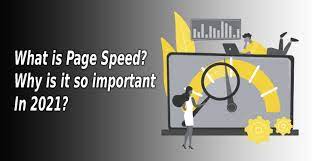In the ever-evolving digital realm, Pagespeed Ladezeit Webseite optimieren verbessern where instant gratification has become the norm, website performance holds the key to success. Among the various crucial metrics defining a website’s performance, page speed stands out as a fundamental factor influencing user experience, search engine rankings, and overall online success.
Page speed refers to the time it takes for a web page to load its entire content, including text, images, scripts, and other resources. It is often measured in seconds and milliseconds and plays a pivotal role in determining user satisfaction. According to studies, users tend to abandon websites that take longer than 3 seconds to load, highlighting the significance of a swift loading time.
User Experience and Engagement:
One of the primary reasons page speed matters is its direct correlation with user experience. In a digital landscape where attention spans are dwindling, users demand instant access to information. A slow-loading website can lead to frustration and impatience among visitors, resulting in higher bounce rates and decreased engagement. Conversely, a fast-loading site enhances user satisfaction, encourages prolonged browsing sessions, and fosters a positive perception of the brand.
Search Engine Optimization (SEO):
Search engines, led by Google, prioritize user experience as a crucial ranking factor. Page speed directly influences SEO performance, with search engines favoring websites that offer faster load times. Google’s algorithms consider page speed when determining search rankings, making it imperative for websites to optimize their loading times to enhance visibility and organic traffic.





More Stories
Trader Joe’s: The Unique Grocery Store That Captures Hearts and Taste Buds
Understanding Finance: An Overview of Key Concepts and Principles
The Role of an SEO Specialist: Driving Online Visibility and Success